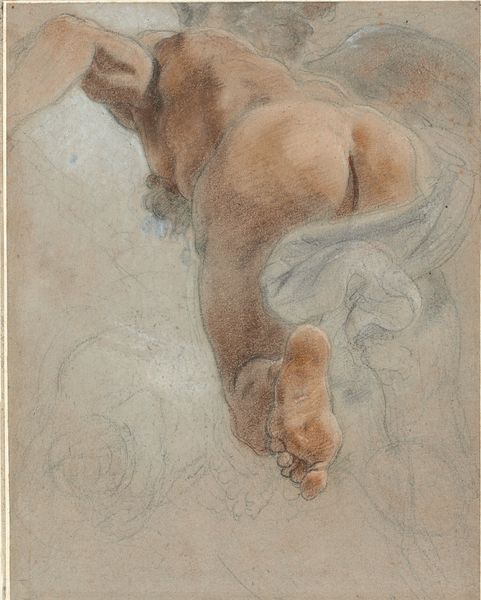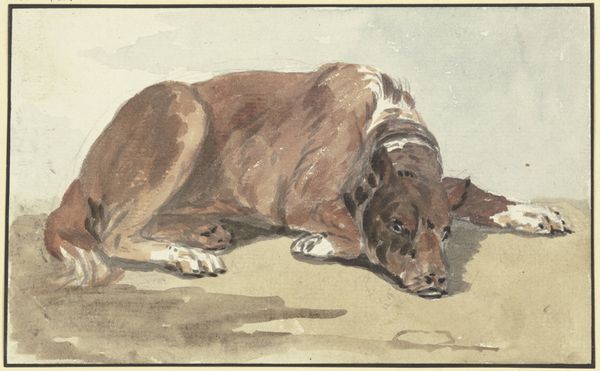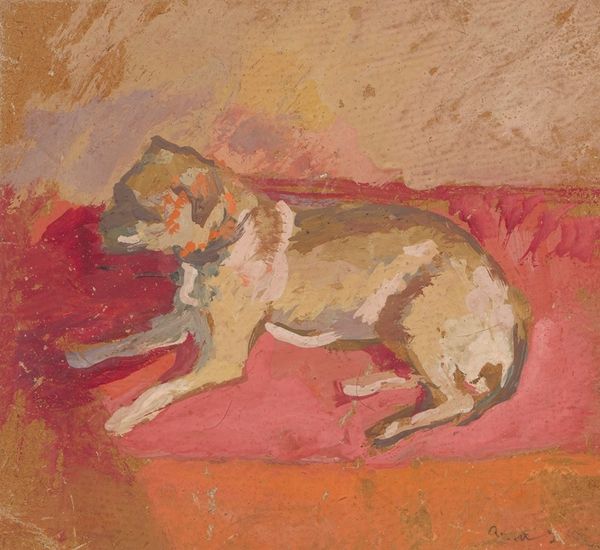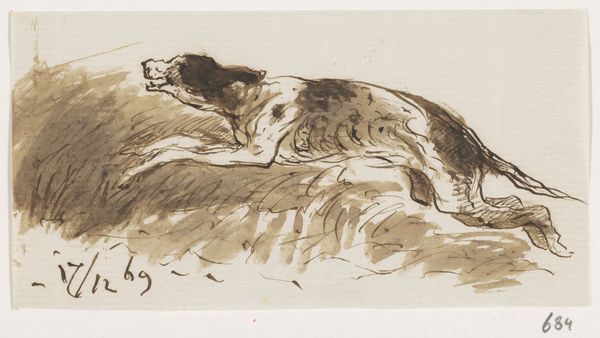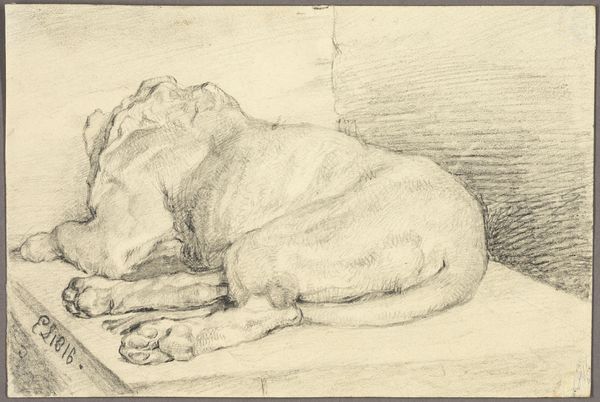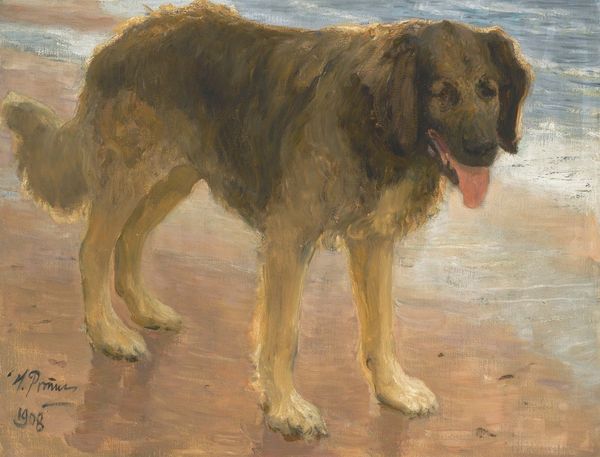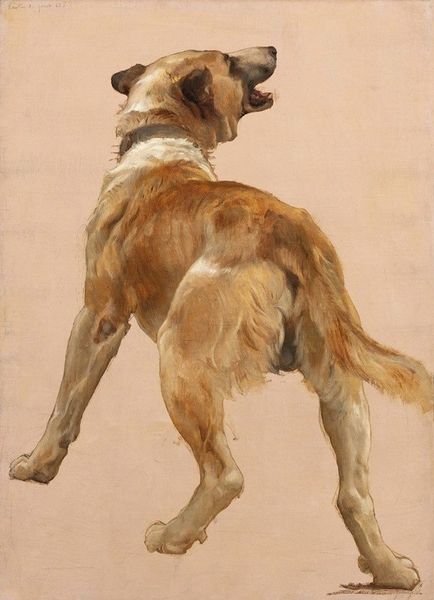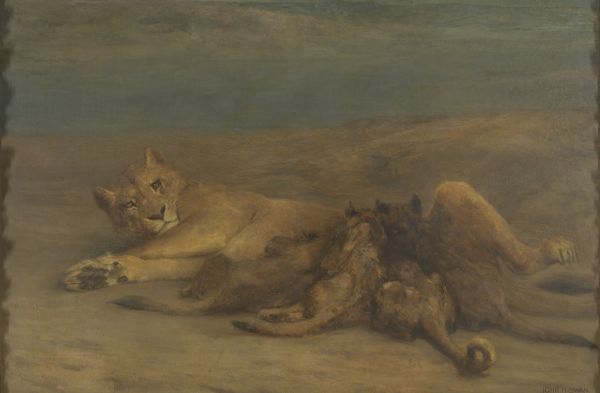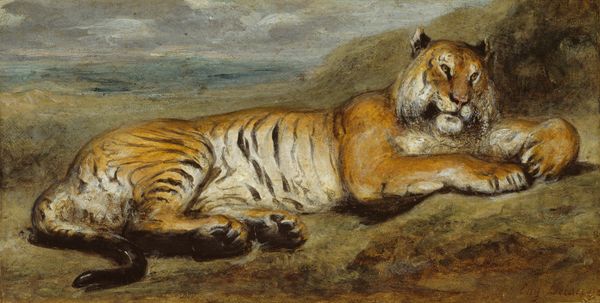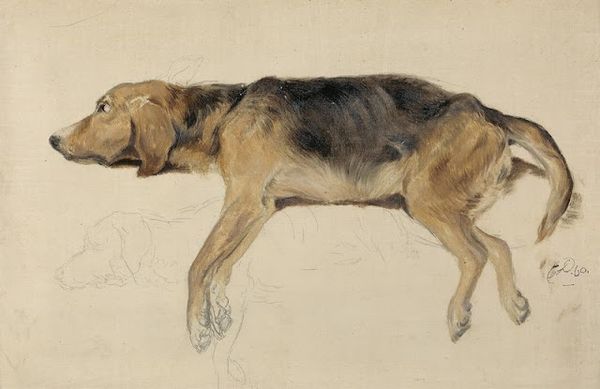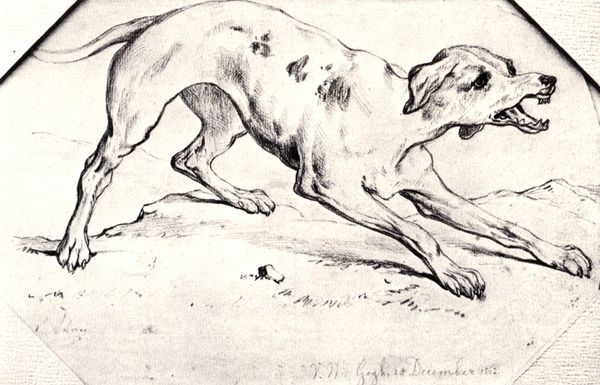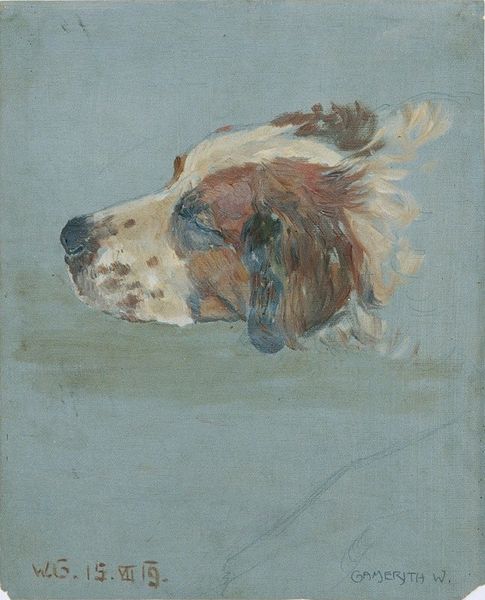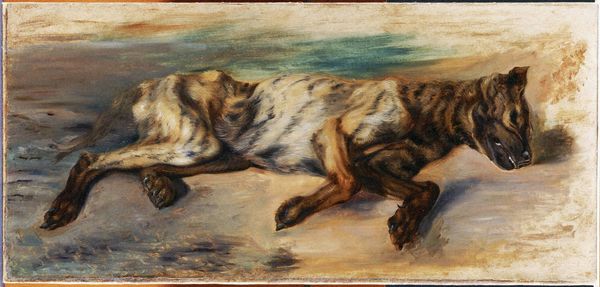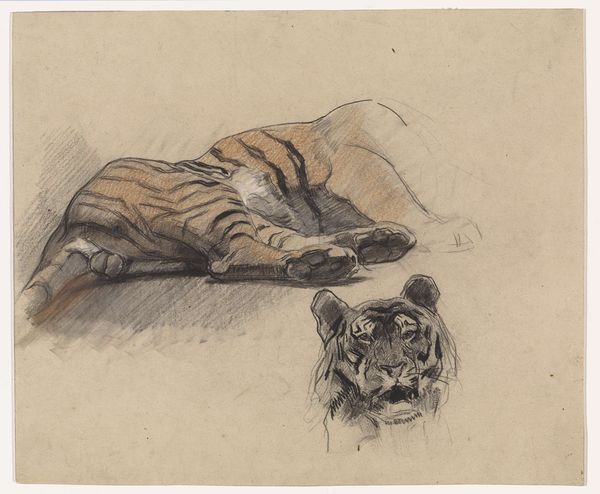
drawing
#
portrait
#
drawing
#
animal
#
landscape
#
charcoal drawing
#
oil painting
#
romanticism
#
portrait drawing
#
watercolor
#
realism
Copyright: Public Domain: Artvee
John Frederick Lewis’ "Study of a Lioness" captures our attention with its stark contrast between the detailed foreground and the ethereal background, achieved through watercolour. The lioness, mouth agape, dominates the composition. Lewis’ use of line and form creates a dynamic tension. The unfinished background, with its pale washes and visible sketch lines, contrasts with the detailed rendering of the lioness. This technique challenges our conventional understanding of the complete versus incomplete. The lioness's form disrupts any sense of serenity; the open mouth, a semiotic signifier of either a yawn or roar, creates an ambiguity. Her state destabilizes our expectations of the docile animal. Lewis isn’t just representing an animal but exploring the boundaries of representation itself. The tension between the raw sketch and finished detail encapsulates a broader artistic discourse about the nature of representation. Lewis’s "Study of a Lioness" remains a compelling piece.
Comments
No comments
Be the first to comment and join the conversation on the ultimate creative platform.
